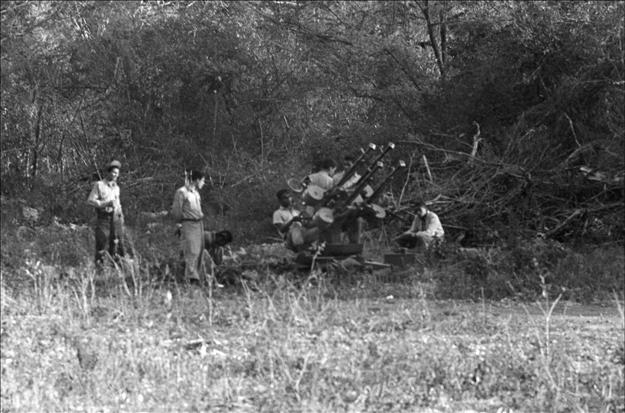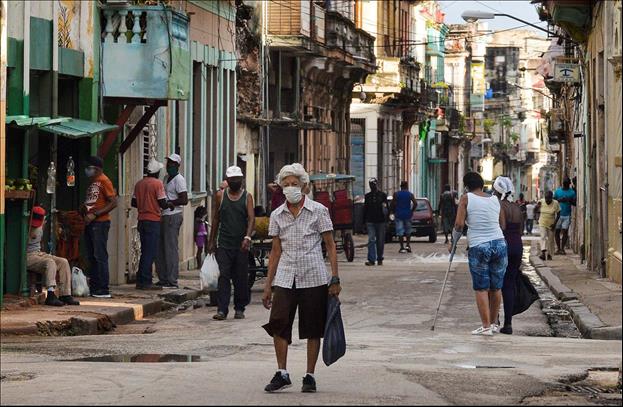(MENAFN- The Conversation) Cuba's Castro dynasty has officially ended.
On April 16, 2021, Raul Castro – younger brother of longtime Cuban leader Fidel Castro – of the Communist Party of Cuba, the most powerful position in Cuba.
Castro, 89, became Cuba's president in 2008, after his brother's incapacitation, and took over the first secretary role from Fidel in 2011. Fidel Castro died in 2016.
Just as Fidel's death did not , neither does Raul Castro's departure.
Cuban , who took office in 2018 after Raul Castro stepped down as president, has resisted calls for democratic reforms and has to manage, as well as a pandemic.
So does his American counterpart, President Joe Biden. The White House is ''not a top priority.''
Neither leader is likely to with bold diplomacy. But younger Cubans continue to separate themselves from the policies and priorities of their government, creating a basis for a different relationship with the U.S.
No longer a threat
Raul Castro's retirement coincided with the of Cuba's military triumph over the U.S. at the Bay of Pigs.

Cuban troops use Soviet-made anti-aircraft artillery to thwart a U.S.-supported invasion at the Bay of Pigs in April 1961. On April 17, 1961, Cuban nationals aided by the CIA designed to overthrow Fidel Castro. The Cuban army quickly defeated them, humiliating the Kennedy administration.
Cuba soon allied itself with the Soviet Union, then America's greatest enemy. The U.S. responded with a .
In the six decades since, U.S.-Cuban relations have alternated between hostile and icy, with a under President Barack Obama.
Fidel Castro's Cuba supported across Latin America and the world, from Nicaragua to Angola. In 1962, Castro permitted to be set up in Cuba and aimed at the U.S., about 100 miles away, leading the U.S. and Soviet Union to the brink of nuclear war.
Today Cuba is still communist and it remains on the State Department's that support terrorism, alongside Iran and North Korea. But bereft of , it presents no danger to the U.S. mainland or its allies.
Cuba can do little more than irritate U.S. presidents by supporting Latin American leaders who resist American power, like and Bolivia's ousted former leader .
Entrepreneurship, Cuban-style
The Cuban people have changed just as much, according to my .
Unlike their parents and grandparents, Cubans in their 20s, 30s and 40s : We provide you a living, and in exchange you give us support, or at least acquiescence.
Cubans who came of age during or after the so-called ''Special Period'' of the 1990s – when Cuba faced – rely on the government to deliver certain services, primarily health care and education. But they know it cannot feed, clothe and house its people in any but the most basic way.
Young Cubans have to – or '' ,'' a Spanish verb that means ''to resolve'' but which in Cuba refers to providing for one's family.
And the Cuban hustle has a capitalist bent.
In 2008 public payrolls and , hoping Cubans would earn more money and generate more tax revenue. Previously, all jobs in Cuba were government jobs, whether you were a grocer or an architect, with government-regulated salaries.
Today, official statistics say about a are privately employed. But the real proportion is almost surely higher. Almost all the adult Cubans I know have their own business – whether cutting hair or – along with a traditional government-regulated job.
Cuban resolve
Meanwhile, the government has the subsidies that long defined Cuban life. Ration books for staple foods are disappearing and with them, subsidized prices.

Food prices have gone way up in Cuba, and lines at government-run markets can be long. Food and clothing costs have doubled or tripled in Cuba in the past year. by factors of four or five.
since economic liberalization, but not that much.
Consequently, many Cubans operate outside of the law, trading in everything from clothing to scrap metal or gasoline stolen from the state. Cubans call people with illegal businesses '' .''
Whether legal restaurateur or black-market bisnero, Cubans operate businesses not to become rich but to '' .'' They hope to improve their lots modestly, allowing their families to eat a wider range of fresher foods, or to save for a .
Cuba ''forces us to be criminals just to make a living,'' said 26-year-old Carlo Rodríguez, a server at a Havana restaurant.
Generational divide
faithful to the Castros'' vision of Cuba as an anti-imperialist, anti-American outpost. But revolutionary slogans like 'socialismo o muerte'' – 'socialism or death'' – with young Cubans.

Fidel Castro visits Moscow, Russia, in 1964. Young Cubans also want more free speech. While Cubans privately, the Cuban government has long restricted civil liberties. Journalism is mostly state sponsored, and the country's few independent newspapers run into trouble when stories criticize the regime.
only recently became legal and relatively widespread in Cuba.
Last year, a organized via WhatsApp and gained enough popular support to force the government into unprecedented negotiations about expanding freedom of expression in Cuba. A crackdown followed, with some dissidents jailed. But calls for free expression persist among .
[Deep knowledge, daily. .]
Most Cubans also to the U.S., according to a 2015 poll. Since the adoption last year of , American money is ''like gold'' on the island, my friend Tony, a shopkeeper, told me.
It is the U.S. embargo and former president – not the Cuban government – that prevent Americans from spending their dollars on the island.
Cubans know this, and they resent the for making their lives miserable. But younger Cubans recognize Cuba's as a problem, too.
Cuban Americans, on the other hand, largely . Recent about 45% support keeping the embargo, up 10 points from two years ago.
Such sentiments make it more difficult for Biden to initiate his own Obama-style ''thaw.'' But they cannot stop the changes at work in Cuban society.
MENAFN05052021000199003603ID1102031246